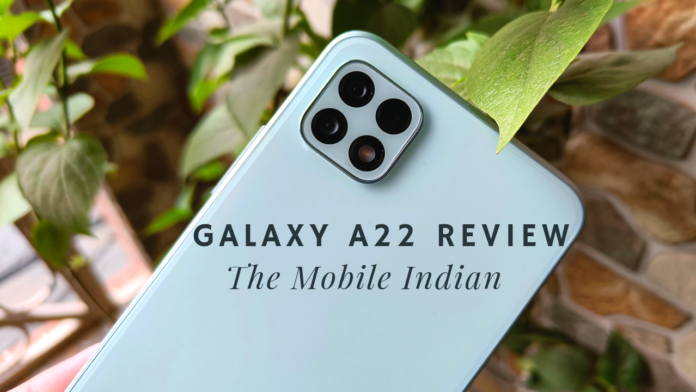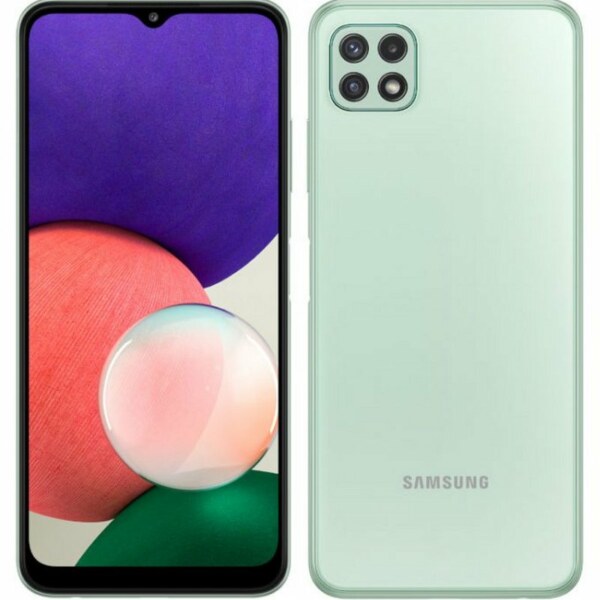The latest mid-ranger from Samsung you would find in the market is the Samsung Galaxy A22 5G. With a price tag of Rs 19,999 for 6GB + 128GB variant and Rs 21,999 for 8GB + 128GB variant, this device by Samsung aims to compete with iQOO Z3, Xioami’s Mi 11 Lite and OnePlus’ Nord CE 5G.
While we have seen many tough competitors from Samsung in the past giving its competition a hard time, let’s see if Samsung can maintain its track record this time over. Here’s the review of the Samsung Galaxy A22 5G:
Design & Display
The Samsung Galaxy A22 follows Samsung’s typical design guidelines with a camera array on the top left corner. The phone is on the thicker side with 9mm of thickness. Apart from that, it feels heavy in hand at 203 grams. The back is made of plastic that has been given a matte finish which helps it not feel cheap. We get a 3.5mm jack here at the bottom and a Mono speaker and Type-C port. The phone definitely feels like a brick in hand and those who want lighter phones with a more premium feel, can skip this one.
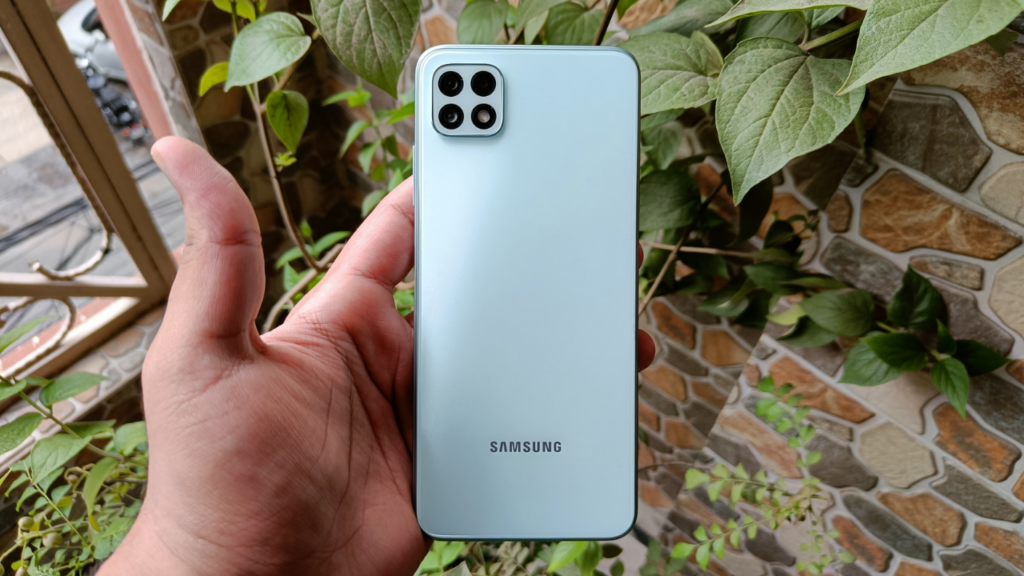
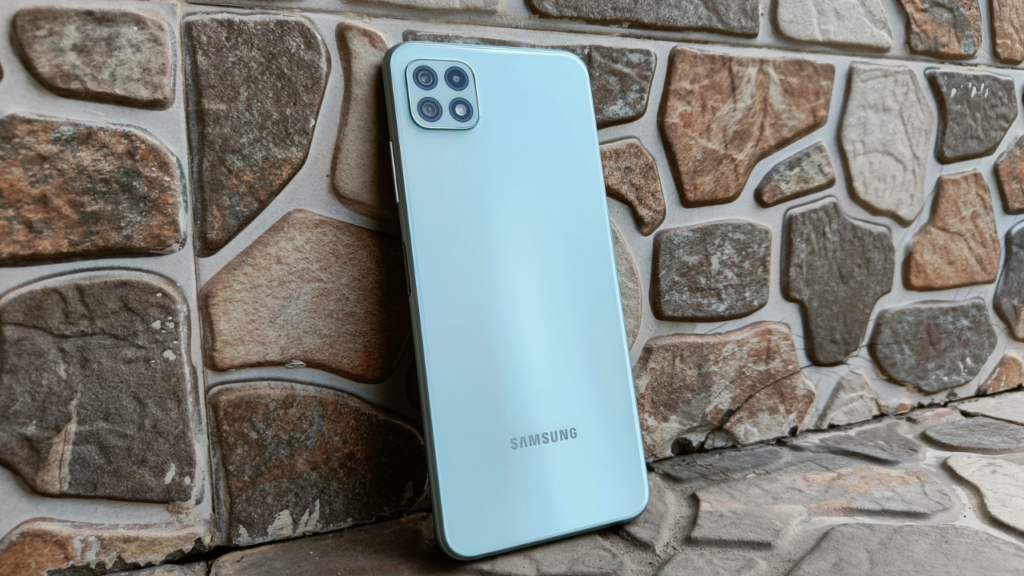
On the right resides the volume rocker along with a power button integrated fingerprint sensor. This fingerprint sensor wasn’t always consistent in detecting my fingerprint. Out of 10 times, I would say it could easily recognise my finger only 7 times.
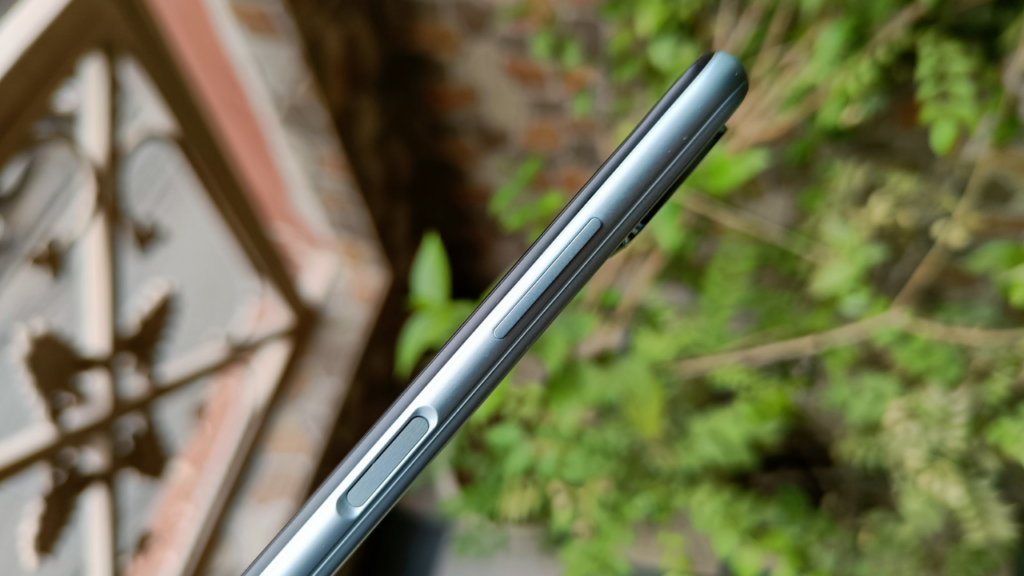
And the phone sometimes took me to the lock screen while at times it straightaway took me to the last App I was using. The unlocking speed was also a bit slow when you enabled the ‘press button to unlock’. If you are staying with a firm touch on the sensor to unlock, then it’s fine for the most part.
In terms of design, I would say I liked the iQOO Z3 much more with its curved back and shiny rear panel. It looked unique with a slim profile which is definitely not the case here with Galaxy A22 5G.
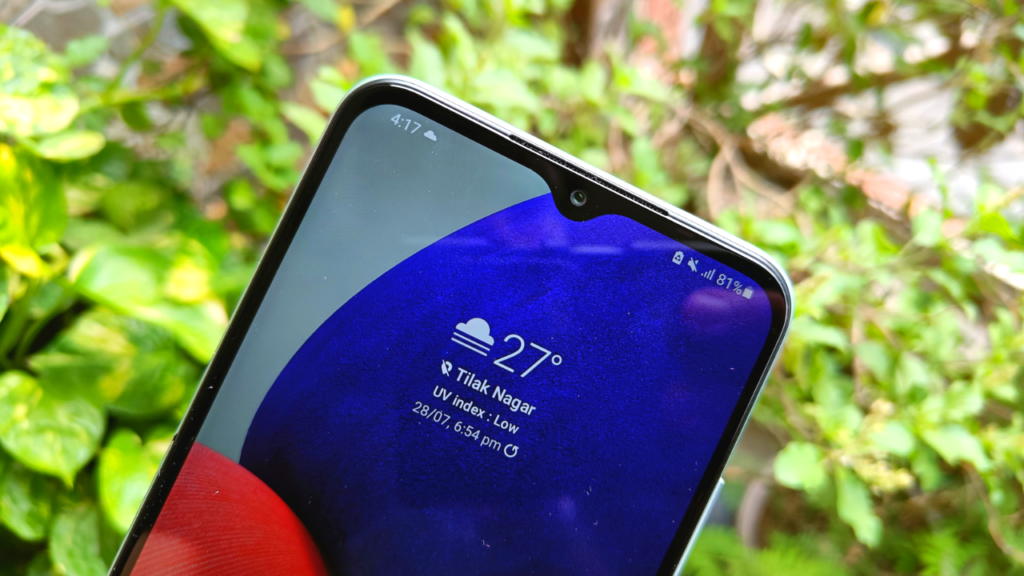
Coming to the display, Samsung has been known to manufacture some of the best displays in the market. This time, the 90Hz full-HD LCD panel on the front shows some sharp and detailed colours with a good amount of brightness. Even the viewing angles looked great and there are no complaints with this display except for one. The bottom chin on the device looks huge and there’s no going back once you start noticing it.
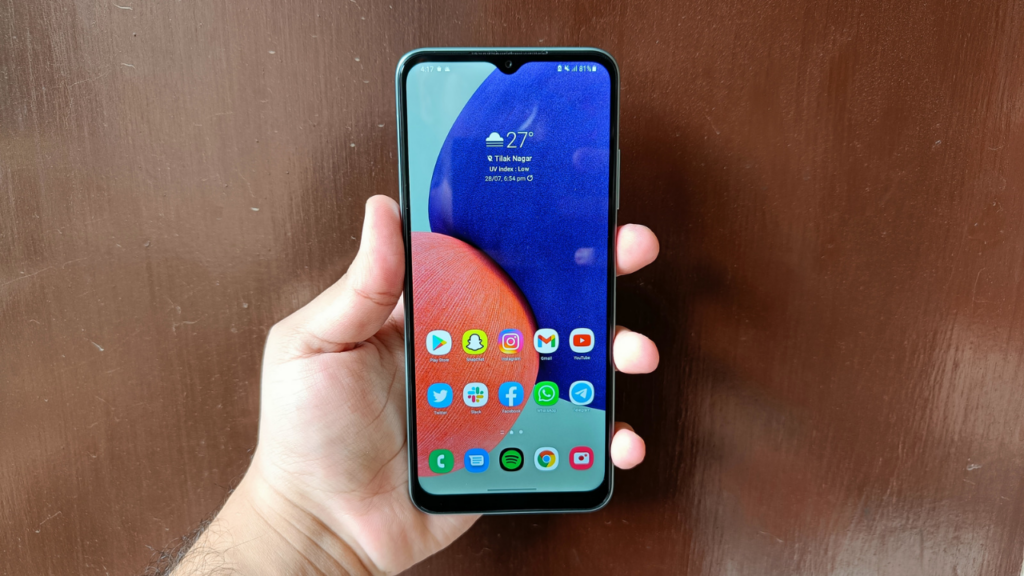
What I would have liked even more was the ability to adjust the colour profile of the display. This is because in some situations, the colours looked a bit over-saturated to me. So I tried to find the option but ended up getting nothing.
Software and Performance
The Samsung Galaxy A22 5G draws power from a MediaTek Dimensity 700 chipset. The variant we got had 6 GB of RAM and 128 GB of storage. The phone runs on OneUI Core 3.1. The core variant of OneUI is a more optimized and toned-down version of OneUI that can run smoothly on lower-powered devices.
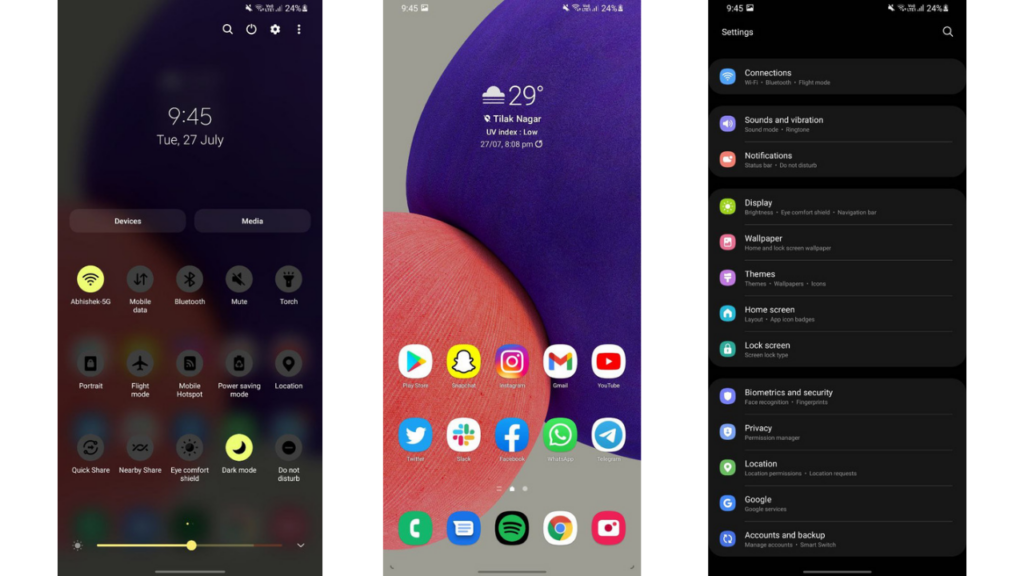
During the Samsung Galaxy A22 5G review, RAM management felt fine while most apps were kept in memory. App launching was smooth enough, but I did face stuttering and frame drops in usage with heavier apps such as Chrome. I have also noticed that the OneUI Core version has faster app opening animations than regular OneUI.
In regular OneUI, the app animations feel smoother than quick, while it’s the opposite in OneUI Core. The core version doesn’t leave out on the basic set of features, though. Features such as various motions and gestures, swipe on the fingerprint to bring down notification panel, various clock styles for lock screen and more, are all present. For security, we have the May security patch, which is 2 months old at this point.
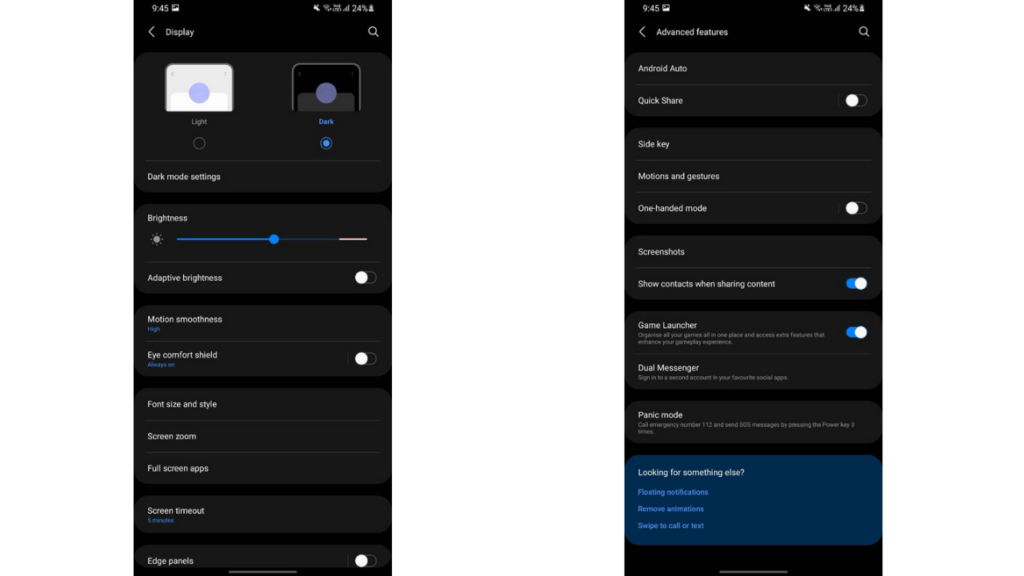
When it comes to gaming, the device did stutter at times while playing even those games that aren’t much graphic-heavy, including Bullet Echo. Call Of Duty Mobile showed me the same stutters at times while playing Multiplayer. Battle Royale wasn’t much of enjoyment either.
Another annoying thing that repeatedly took place that I have noticed with other Samsung phones is the Antenna placement. The device couldn’t keep up with my 5Ghz network even though the Wi-Fi router was 2 rooms away. The problem is further amplified when you hold the phone in landscape position while gaming and the wi-fi keeps on disconnecting, thereby creating ping issues. On mobile data, there were no issues as such.
Calls were all clear both ways. The Galaxy A22 5G is providing support for 12 5G bands. Like other brands, Samsung isn’t providing 5G just for the namesake. I didn’t face any network drops as well. Another thing I didn’t like about the experience was the vibration. The vibration motor rattles and creates so much noise, which isn’t much of a pleasant experience.
I appreciate that Samsung has provided a 3-card slot, meaning you can insert 2 SIM cards and 1 microSD card. In addition, the storage card can expand storage up to 1TB.
Battery Life
The Galaxy A22 5G packs a 5,000mAh battery with 15W fast charging. But for some reason, when competitors provide up to 55W of fast charging, Samsung is only giving 15W. To make things worse, Samsung provides only a 10W charger in the box.
The battery life is one of the strong points of the Galaxy A22 5G. I got up to 6 hours of screen time with 24 hours of usage. Even after that, I still had 24% left, giving me another hour of usage. My usage included browsing Chrome, playing games for a while, WhatsApp calls, and more.
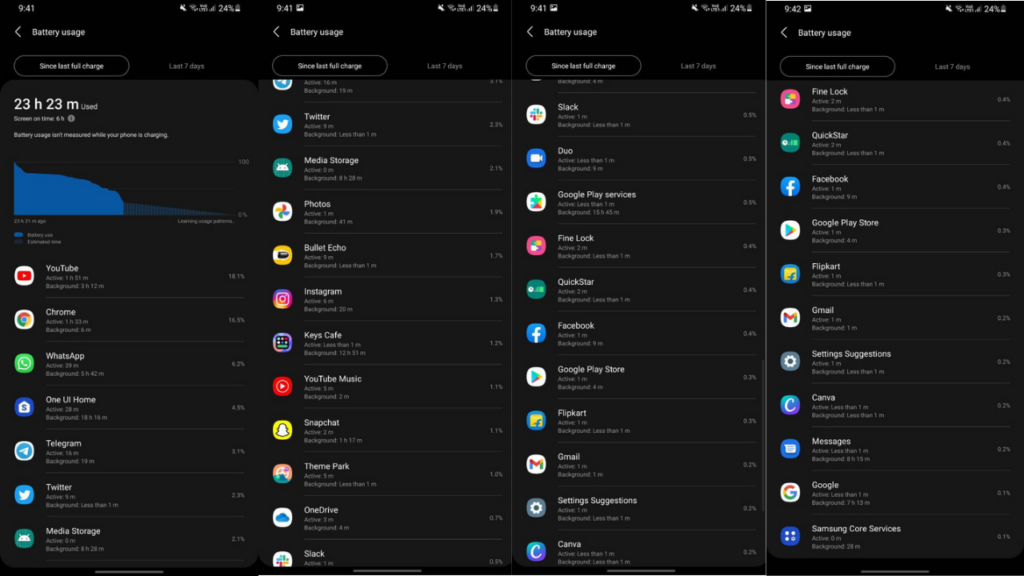
Charging the device from 18% to 100% took about 1h 40m with a 15W charger. And even though it’s just 15W, the phone got close to hot while charging. However, with a 10W charger, the temperature of the phone was normal.
Cameras
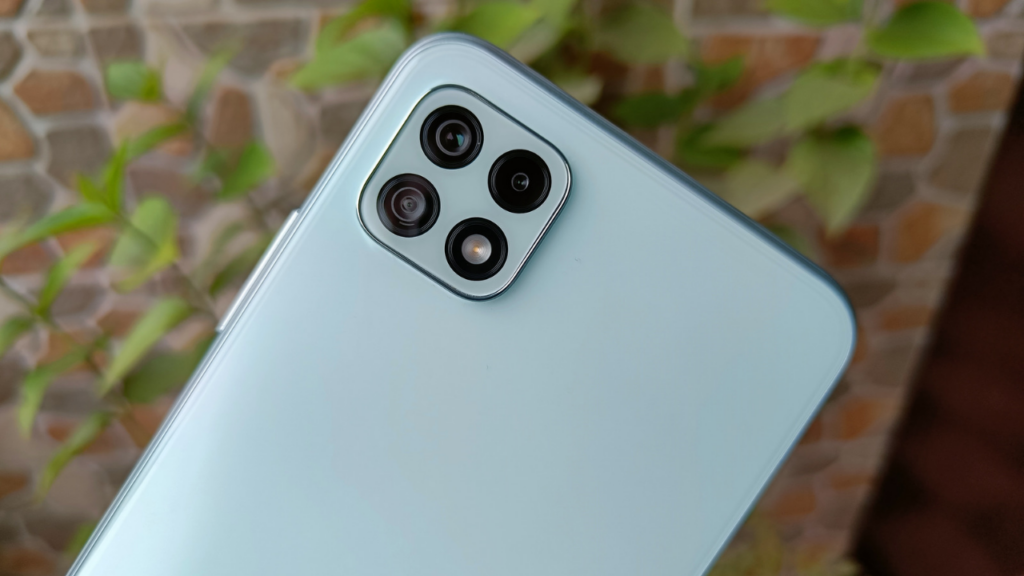
The Samsung Galaxy A22 5G comes with a triple rear camera setup. It has a 48MP primary main camera with f/1.8 aperture, a 5MP ultrawide lens with f/2.2 aperture, and a 2MP depth sensor with f/2.4 aperture. In addition, it has a front camera of 8-megapixel for selfies.
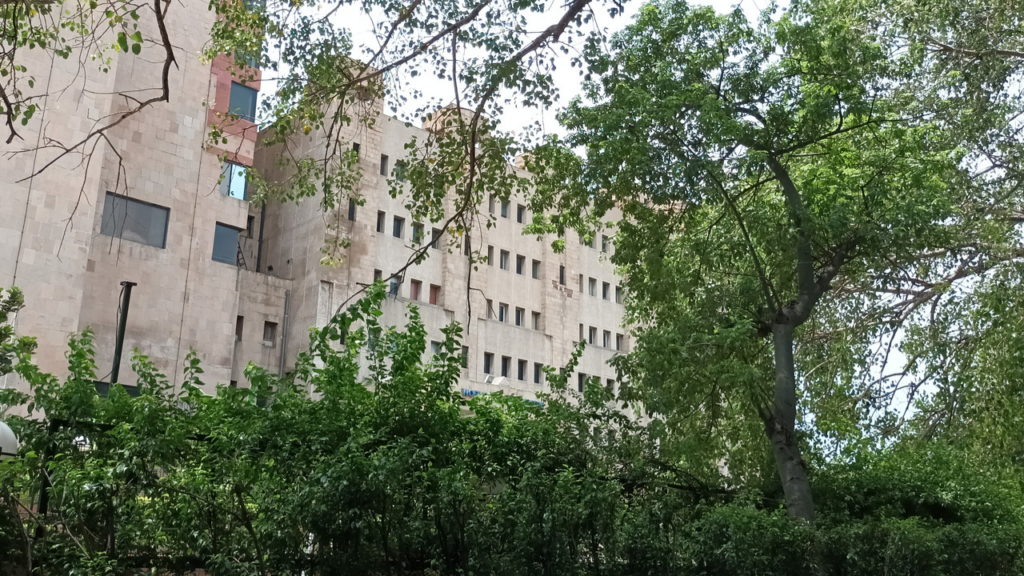
During our review, normal outdoor shots with the Samsung Galaxy A22 5G came out to be decent. The colour tone of the picture has been kept natural, which I appreciate. In addition, we liked how the shots played with exposure and overall lighting in sunlight. The dynamic range also came out to be impressive.
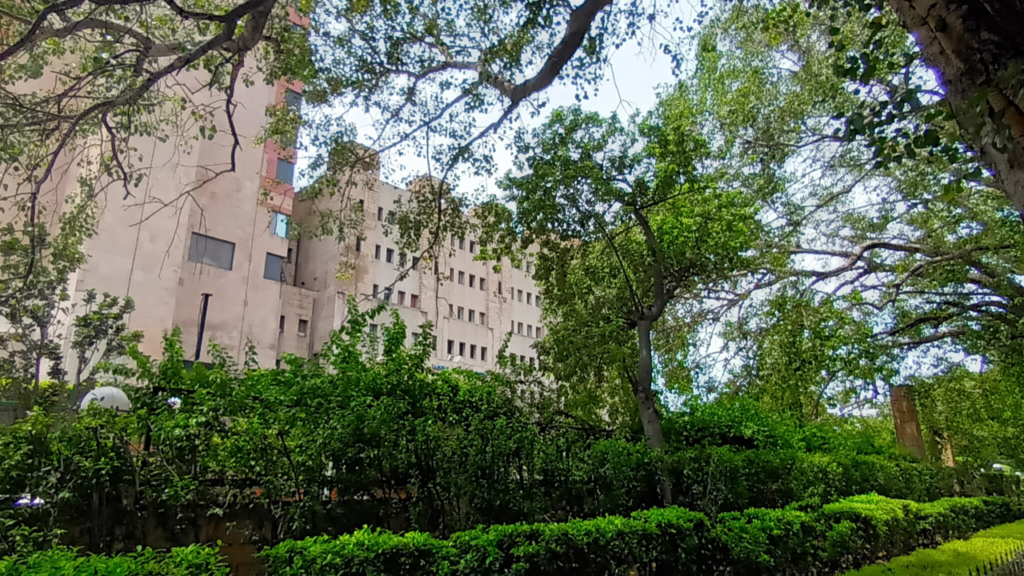
There was an abnormal amount of colour shifting for wide-angle shots compared to shots from the primary sensor. The colours looked over-saturated, and when zooming in, one cannot expect any major amount of details. I could easily witness a smudging effect, and one might get disappointed with the final result.
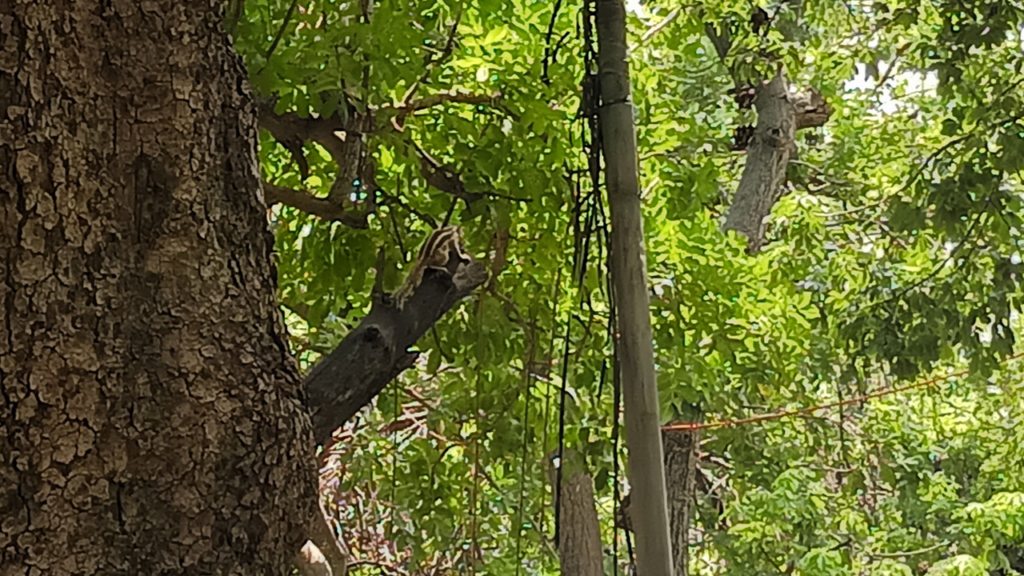
When capturing zoomed-in pictures, you won’t be able to get any details. The whole oil-paint effect comes into the image that ruins the overall experience. For depth shots, the EDGE detection wasn’t accurate enough. I could easily pinpoint locations where the software couldn’t identify the edges of the subject. Hence, the blur was inaccurate. However, the colours and details were intact.
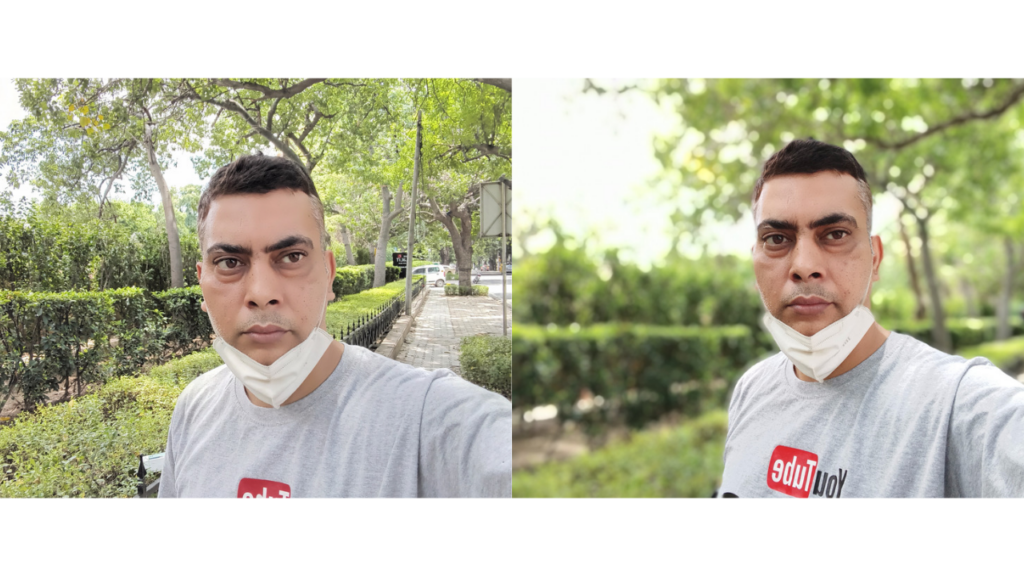
The portrait selfie shots again had the same issue. The edge-detection was again off-point. But the detailing and exposure looked fine. The colours looked vibrant and beautiful in daylight selfies. Normal selfies were a bit overexposed, in our opinion. The colours now looked faded, and while detailing wasn’t as good as they were in portraits.

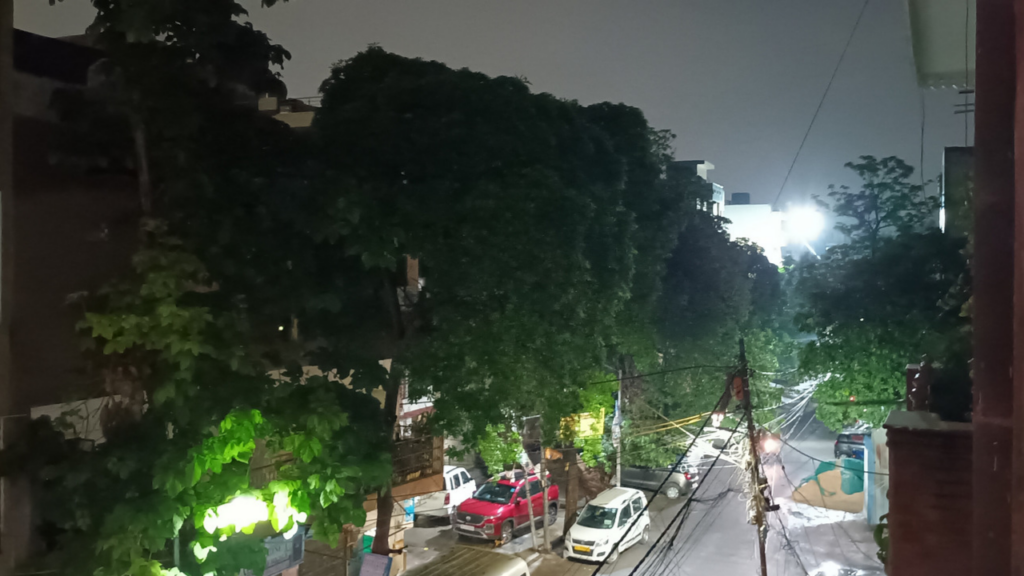
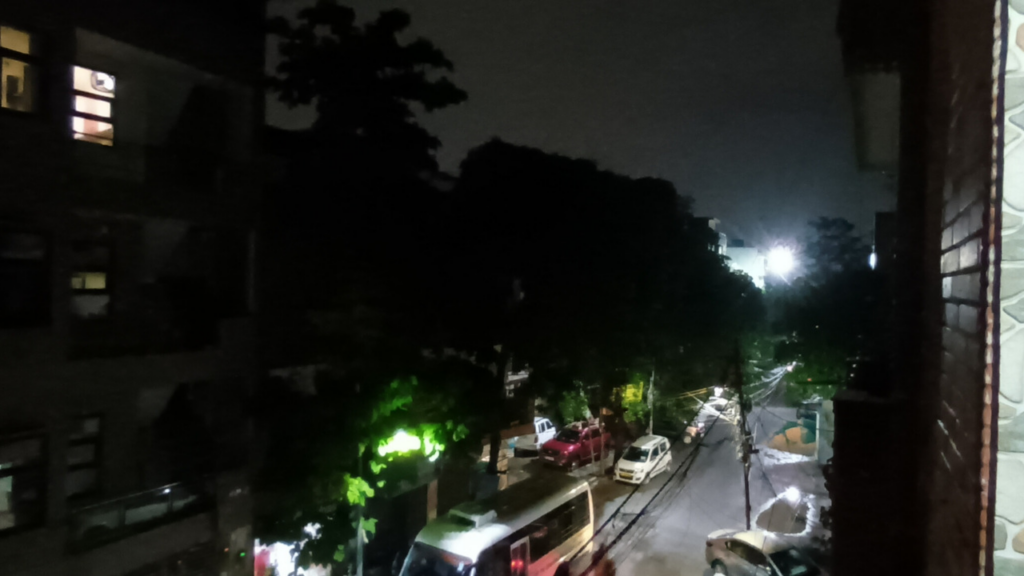
Shots taken under artificial lighting were decent again. The colours looked vibrant, while details were minimal. And the software again struggled to give accurate edge detection. Coming to Night mode shots, these pictures looked atrocious. There’s no amount of detailing you can expect, and there’s a smudged effect all over the pictures. Wide-angle in night conditions behaves like a VGA camera with no sort of colours or details. Night mode didn’t make things better either.


